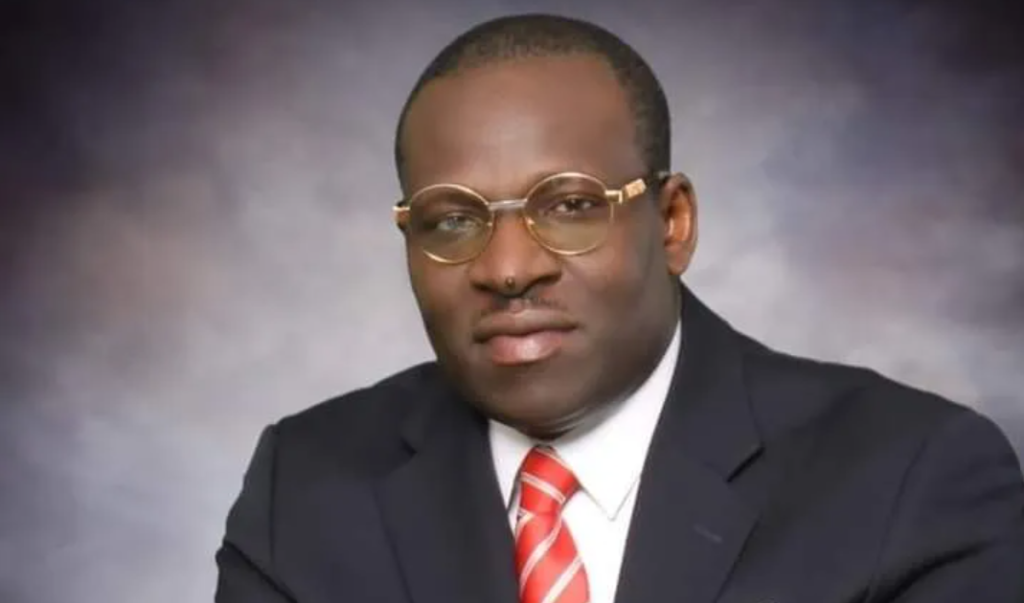In a recent statement, Billy Osawaru, a member of the House of Representatives representing Orhionmwon/Uhunmwode Federal Constituency in Edo State, attributed the success of Senator Monday Okpebholo in the September 21 gubernatorial election to the cohesive and united effort of the All Progressives Congress (APC) leaders and members across the three senatorial districts in the state. The Independent National Electoral Commission had announced Okpebholo as the winner after he secured 291,667 votes, surpassing his closest rivals, Asue Ighodalo of the Peoples Democratic Party with 247,274 votes and Olumide Akpata of the Labour Party, who garnered just 22,763 votes. Osawaru’s remarks during a press briefing at the National Assembly highlighted the importance of teamwork in achieving the party’s electoral victory.
Osawaru expressed optimism about the APC’s emergence as a significant political force within Edo’s governance landscape, viewing it as a harbinger of positive changes in the state. He recounted the hostile political climate characterized by disruptive rhetoric from the previous administration, which prompted the APC to intensify its campaign efforts. He articulated that the Federal Government played a crucial role in ensuring fair electoral conditions by deploying adequate security measures to protect the voting process and maintain peace, which he believes allowed for a legitimate expression of the electorate’s will. He noted that the efforts of the APC, including continuous campaigning, were reflected in the favorable election results.
The lawmaker praised Okpebholo as a proactive and developmental leader, indicating that both he and the newly appointed deputy, Dennis Idahosa, were equipped with a strategic plan aimed at tackling the state’s developmental challenges. Osawaru emphasized that the governor-elect’s readiness to “hit the ground running” would signify a commitment to progressive governance. This assurance of leadership competency resonates widely with constituents looking for immediate and impactful reforms in Edo State, reflecting a collective desire for responsible and impactful governance under the APC rule.
In addressing allegations of vote-buying raised by some political opponents post-election, Osawaru firmly rejected these claims, asserting that the APC’s success stemmed from diligent outreach and convincing voters, rather than unethical practices. He emphasized that since his entry into Nigerian politics, the narrative of post-election accusations typically emanates from losing parties unable to accept the results. For Osawaru, such allegations must be substantiated with tangible evidence, urging those making accusations to present proof to the public. He criticized the reliance on unproven claims, calling for transparency and accountability within the electoral process.
Highlighting the necessity of evidence when making claims against electoral integrity, Osawaru called upon observers and other stakeholders to take appropriate legal actions if they believe irregularities occurred during the election. He suggested that allegations of vote-buying require substantial evidence, such as video footage or eyewitness accounts, to validate their authenticity. This firm stance indicates Osawaru’s commitment to electoral integrity and the importance of maintaining trust in the democratic process in Nigeria.
Finally, Osawaru rebuffed suggestions that the APC’s victory symbolized a return to an era of political godfatherism, arguing that seeking counsel from experienced politicians does not equate to the exertion of undue influence. He framed such interactions as constructive collaborations essential for advancing the state’s development. In position, he called for a more nuanced understanding of political mentorship in Edo State, countering the narrative of godfatherism by emphasizing the value of collaborative governance aimed at benefiting the populace. This assertion aligns with the APC’s vision of a political environment where collective efforts, rather than individual dominance, foster growth and development within the state.














